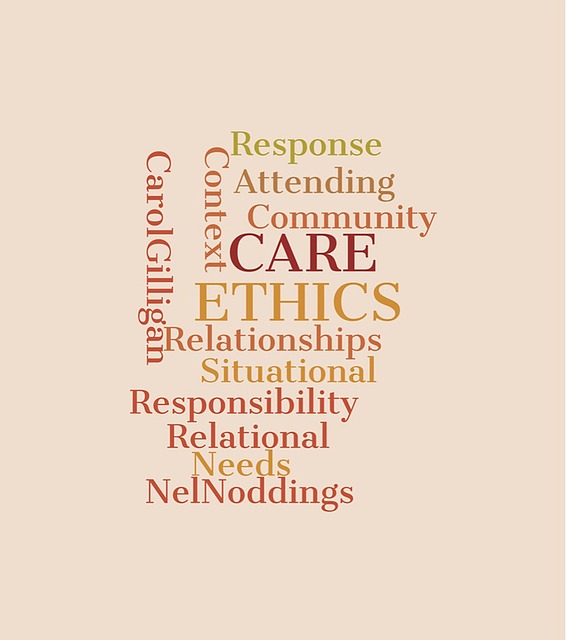UK Code of Conduct and Ethics translation services are indispensable for global companies with diverse workforces, ensuring that the company's ethical standards are universally understood by all employees, regardless of language barriers. These specialized translation services provide precise translations that capture the nuances and detailed stipulations of the original text, making the code accessible in multiple languages while preserving its intent and impact. This process is crucial for maintaining integrity and accountability on a global scale, fostering a culture of integrity across linguistic and geographical divides. It prevents misunderstandings, promotes compliance, and aligns ethical practices with local cultural values. By employing professional translators who specialize in legal and ethical language, companies can enhance compliance rates, build stakeholder trust, satisfy legal requirements, and uphold their reputation as ethical leaders within the industry. These services are essential for multinational corporations to navigate the complexities of international business while adhering to universal ethical standards.
Organizations operating on a global scale must navigate the complexities of diverse cultures and languages to ensure their ethical standards are universally understood. This article explores the critical role of translating corporate codes of ethics, exemplified by the UK Code of Conduct and Ethics. By examining case studies and providing strategies for effective translation across different languages, it underscores the necessity of professional translation services in maintaining the integrity of ethical guidelines worldwide. Join us as we delve into the essential aspects of multilingual communication to uphold corporate ethics, ensuring that every employee, regardless of their language, can embrace the ethical principles that guide the company’s operations.
- The Necessity of Translating Corporate Codes of Ethics: A Case Study on UK Code of Conduct and Ethics
- Overcoming Language Barriers with Professional Translation Services for Ethical Standards
- The Role of Multilingual Communication in Upholding Corporate Ethics
- Key Considerations When Translating Ethical Documents: Accuracy and Cultural Sensitivity
- Case Example: Successful UK Code of Conduct and Ethics Translation for Global Operations
- Strategies for Effective Translation of Ethical Corporate Codes Across Different Languages
The Necessity of Translating Corporate Codes of Ethics: A Case Study on UK Code of Conduct and Ethics

In an increasingly globalized business environment, the necessity of translating corporate codes of ethics, such as the UK Code of Conduct and Ethics, cannot be overstated. Multinational corporations with diverse workforces spanning different geographical regions must ensure that their ethical standards are universally accessible and understood. This is where professional translation services play a pivotal role. The UK Code of Conduct and Ethics serves as a foundational document that outlines the principles and expectations for ethical behavior within the organization. Its translation into multiple languages not only aligns with legal requirements in different jurisdictions but also fosters trust and transparency among employees, clients, and stakeholders worldwide. By making this code available in the primary languages of its employees, a company demonstrates commitment to its values across borders and cultures. This initiative is crucial for maintaining consistency in ethical standards, mitigating risks associated with miscommunication or misunderstandings, and promoting a culture of integrity that resonates with all members of the organization, regardless of their linguistic background. Utilizing specialized UK Code of Conduct and Ethics translation services ensures that the nuances and legal implications of ethical guidelines are preserved in each translated version, thereby upholding the integrity and effectiveness of the original document. This commitment to clear and accurate communication transcends language barriers and solidifies the company’s reputation as an ethical leader in its industry.
Overcoming Language Barriers with Professional Translation Services for Ethical Standards

In today’s global business environment, effective communication across diverse linguistic groups is paramount for maintaining ethical standards. The UK Code of Conduct and Ethics, a critical framework for ensuring responsible corporate conduct, often exists solely within the English language, potentially excluding non-English speaking employees or partners from fully understanding its tenets. Overcoming this language barrier is essential for fostering a truly global culture of ethics and compliance. Professional translation services specializing in corporate governance and ethical documents play a pivotal role here. They offer precise translations that accurately convey the nuances and specifics of the original text, ensuring that all stakeholders, regardless of their language proficiency, can engage with and adhere to the ethical standards set forth by the company. This not only demonstrates a commitment to inclusivity but also protects the integrity of the corporate values across international operations.
Choosing the right translation service is crucial for organizations that wish to expand the reach of their UK Code of Conduct and Ethics. These specialized services are staffed by experts who possess not only linguistic prowess but also an understanding of the ethical context within which such documents operate. Their translations go beyond mere word-for-word renditions; they provide culturally relevant adaptations that respect the original message’s intent while ensuring it resonates with the target audience. This level of care and precision is indispensable for organizations aiming to uphold their ethical standards across different linguistic markets, thereby fostering a consistent corporate identity and promoting trust among all employees and business partners worldwide.
The Role of Multilingual Communication in Upholding Corporate Ethics

In today’s global marketplace, the role of multilingual communication is paramount in upholding corporate ethics. Organisations with a diverse workforce or international operations must ensure that their code of conduct and ethics resonates with every employee, irrespective of their native language. This is where UK Code of Conduct and Ethics translation services become indispensable. These services facilitate a clear and consistent understanding of ethical standards across different linguistic groups, thereby fostering a culture of integrity and accountability that transcends borders. By providing accurate translations, companies can ensure that all employees, regardless of their language proficiency, are fully aware of the expectations and responsibilities outlined in the corporate code. This not only promotes a more cohesive and ethically aligned workforce but also mitigates the risk of misinterpretation or non-compliance due to language barriers.
The benefits of employing UK Code of Conduct and Ethics translation services are manifold. They enable global companies to effectively communicate their ethical standards, ensuring that every employee, from London to Lagos, understands the company’s values and expectations. This level of clarity is crucial in maintaining trust with stakeholders, including customers, suppliers, and shareholders, as it demonstrates a commitment to transparency and ethical conduct. Moreover, it aligns with legal requirements in different jurisdictions, where local laws may necessitate the provision of such documents in the language of the workplace. The result is a more harmonious and ethical business environment, one that respects cultural differences while upholding universal standards of integrity and responsibility.
Key Considerations When Translating Ethical Documents: Accuracy and Cultural Sensitivity

When translating ethical documents such as the UK Code of Conduct and Ethics, organizations must navigate the delicate balance between accuracy in conveyance and cultural sensitivity to ensure the message is both authentic and effective across different linguistic and cultural contexts. Accuracy stands paramount; each term, principle, and nuance within the original text must be precisely replicated in its translation. This precision ensures that the ethical guidelines remain unaltered in their intent and meaning, which is crucial for maintaining a consistent corporate ethos worldwide. Translators must exercise meticulous attention to detail, employing specialized knowledge of both source and target languages to avoid misinterpretations or loss of original context.
Cultural sensitivity is equally vital in these translations. Ethical documents often contain values and principles that are deeply rooted in the cultural norms of the originating country. A successful translation for such documents requires an understanding of the cultural nuances that could potentially affect interpretation in the target language’s cultural context. This involves not only a linguistic proficiency but also a deep appreciation for the societal values, business practices, and ethical frameworks within which the translated code will be implemented. Utilizing UK Code of Conduct and Ethics translation services that possess this multifaceted expertise ensures that the end product is both a faithful representation of the original document’s intent and appropriately tailored to resonate with the audience for whom it is intended. This harmonious blend of accuracy and cultural sensitivity is key to maintaining the integrity of ethical standards across international borders.
Case Example: Successful UK Code of Conduct and Ethics Translation for Global Operations

Companies operating on a global scale often grapple with the challenge of ensuring that their corporate codes of conduct and ethics are accessible and understandable to all employees, regardless of their linguistic background. The UK Code of Conduct and Ethics has been successfully translated into multiple languages for global operations, showcasing a commitment to inclusivity and clarity in communication. This initiative facilitates effective understanding and adherence to ethical standards across different regions, thereby promoting consistency and integrity within the company’s workforce.
The translation process is meticulously handled by professional UK Code of Conduct and Ethics translation services, which ensure that the nuances and complexities inherent in such documents are accurately conveyed in each target language. These services often employ native speakers and professionals with expertise in legal and ethical terminology to guarantee precision and reliability. By making the code available in the native languages of employees, companies have reported a marked improvement in compliance and an enhanced ability to maintain a strong ethical culture that transcends borders. This not only protects the company’s reputation but also fosters trust among stakeholders and enhances the overall effectiveness of corporate governance.
Strategies for Effective Translation of Ethical Corporate Codes Across Different Languages

In an increasingly globalized business environment, the importance of effectively translating corporate codes of ethics cannot be overstated. For organizations with a multinational presence, such as those operating in the UK, the translation of documents like the Code of Conduct and Ethics is not just a matter of semantics; it’s a critical component of upholding corporate values across diverse cultures. To achieve this, companies must employ strategic approaches to ensure that the essence of ethical guidelines is accurately conveyed in different languages. This involves selecting translation services with expertise not only in linguistics but also in the nuances of ethics and compliance. Key strategies include employing professional translators who specialize in legal and ethical documents, utilizing advanced translation technology with a focus on context understanding, and engaging in a review process with bilingual subject matter experts. These steps help to mitigate cultural misunderstandings and ensure that all employees, regardless of their language or location, understand the ethical standards expected of them. This commitment to clear and consistent communication is essential for maintaining trust and integrity within the company and with its stakeholders.
Furthermore, the process of translating the UK Code of Conduct and Ethics should be an iterative one, with ongoing feedback loops that allow for continuous improvement. Translation services should be dynamic, adapting to new expressions and ethical challenges that may arise over time. By leveraging a combination of expert human translation and sophisticated machine translation tools, companies can create a living document that evolves with the organization’s global footprint. This approach not only honors the original intent of the code but also respects the linguistic integrity and cultural context of each language it is translated into. In doing so, organizations demonstrate their dedication to ethical practices and responsible global citizenship.
In conclusion, the translation of corporate codes of ethics, as exemplified by the UK Code of Conduct and Ethics, is not merely a matter of linguistic equivalence but a nuanced process that requires cultural sensitivity and a deep understanding of ethical principles. By leveraging professional translation services, companies can effectively communicate their ethical standards to a global workforce, fostering an environment where employees from diverse backgrounds are united by a shared commitment to ethical conduct. The strategies outlined in this article underscore the importance of multilingual communication as a cornerstone for maintaining corporate integrity across borders. As businesses continue to expand internationally, the ability to translate and convey ethical codes with precision becomes increasingly vital. Organizations that prioritize this aspect will undoubtedly enhance their global operations’ effectiveness and ensure compliance with international standards of ethics.



